Did you know that the popular 90s cooking show Khana Khazana, was originally named Shriman Bawarchi?
It was on Sanjeev Kapoor’s insistence that director Hansal Mehta and his Australian partner changed the title to something that sounded “a bit more appealing”.
It also may come as a surprise to many fans of the cooking show to know that it was originally supposed to have a female host, and every episode was to feature a different chef. However, audiences were so charmed by Sanjeev’s screen presence in the first episode that he took over the show, and the rest is history.
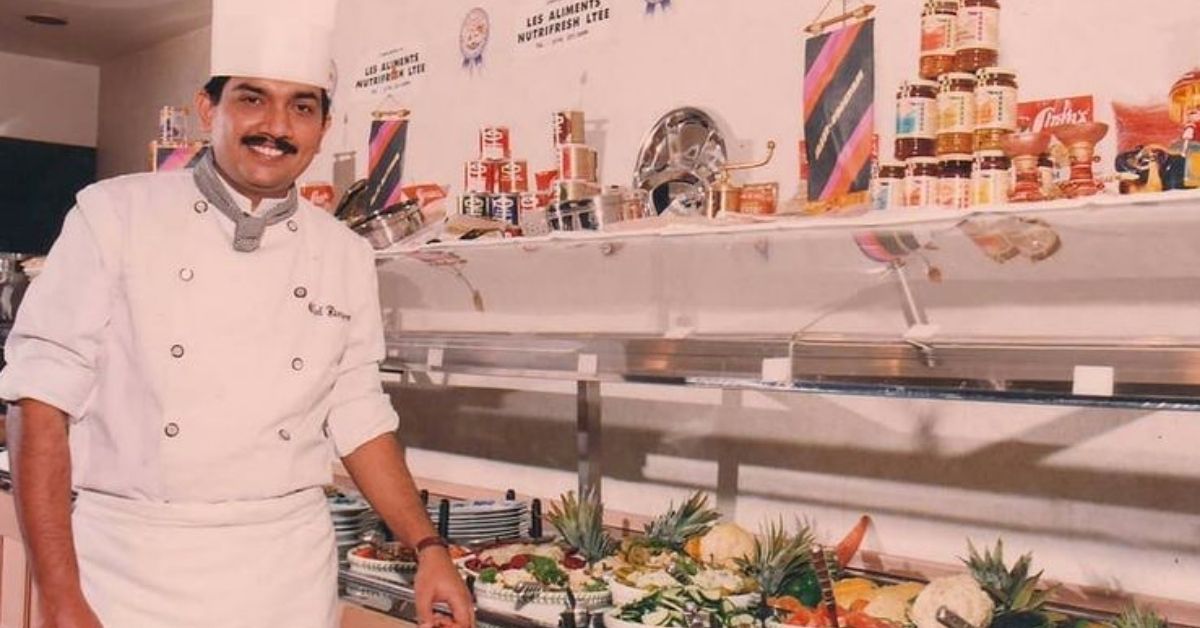
The weekly one-hour episodes were screened across 120 countries and ran for a whopping 18 years, touching the hearts of millions of foodies, homemakers, and aspiring chefs across the world.
Over the years, the maverick chef has received innumerable letters and met umpteen fans who have shared personal anecdotes about the impact of Khana Khazana.
“Wives, and even husbands, have written to me saying I have saved their marriage. I have even received marriage proposals. I remember meeting a lady at the Colorado airport who couldn’t stop thanking me for helping her settle in the family with ease after marriage,” he tells The Better India.
A part of every Indian household
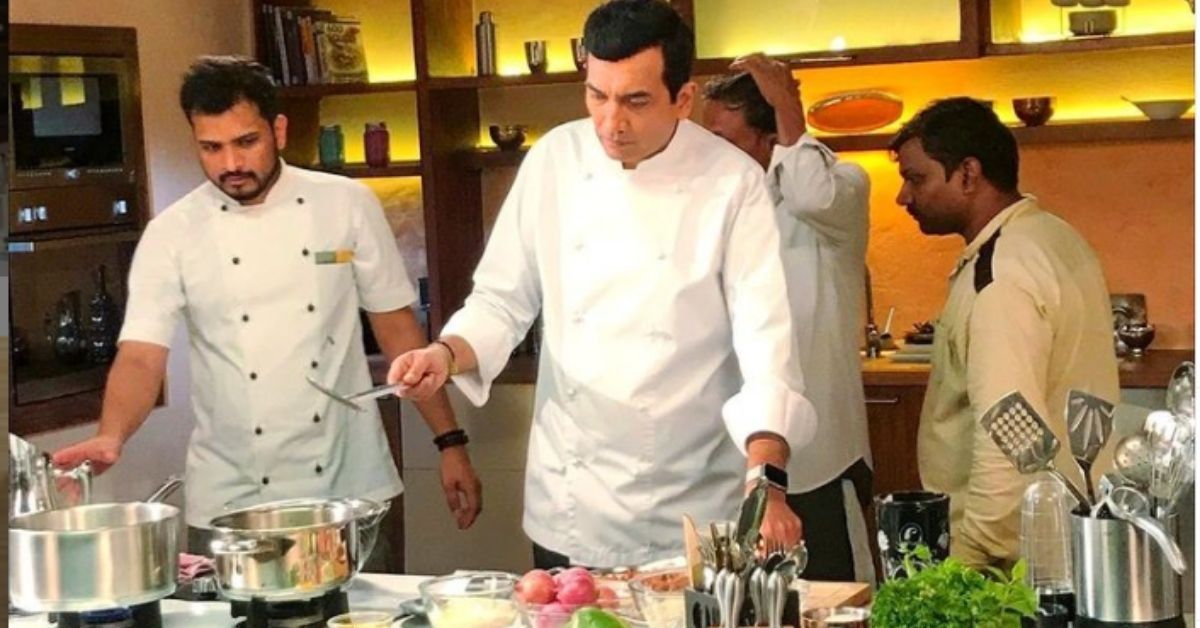
Whether it is TV or YouTube, Sanjeev maintains his signature style of preparation across all mediums.
“I do not act, I just cook and the cameras just happen to be there. I keep the audience, who is looking for a simple way to make the most exotic dishes, as my target. That understanding has to be there to gauge attention in a world where people’s attention span is barely 30 seconds. I take my time to cook instead of rushing,” he says.
In the 90s and 2000s, almost every Indian household had a ritual of sitting before their television sets with bated breath, armed with a pen and paper, waiting for the ever-smiling chef to appear on their screens to spill his recipe for the day.
Elaborate hotel-made meals would be simplified by the chef, dressed in a white toque blanche and double-breasted jacket, in a way that revolutionised the Indian culinary landscape.
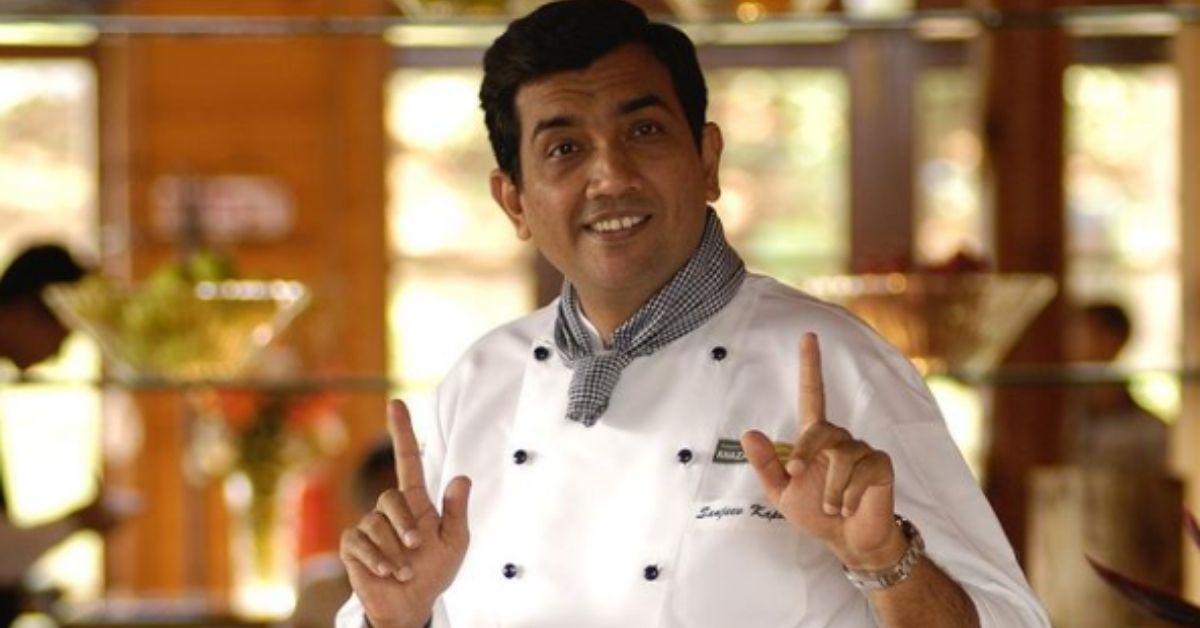
From owning 59 restaurants to running his own food channel ‘FoodFood’, authoring over 150 cookbooks, incorporating more than 10,000 recipes on his online portal and serving thousands of free meals to healthcare workers during the pandemic, Sanjeev has carved a special niche in Indian cuisine.
An ‘Out-of-Box Ingredient’
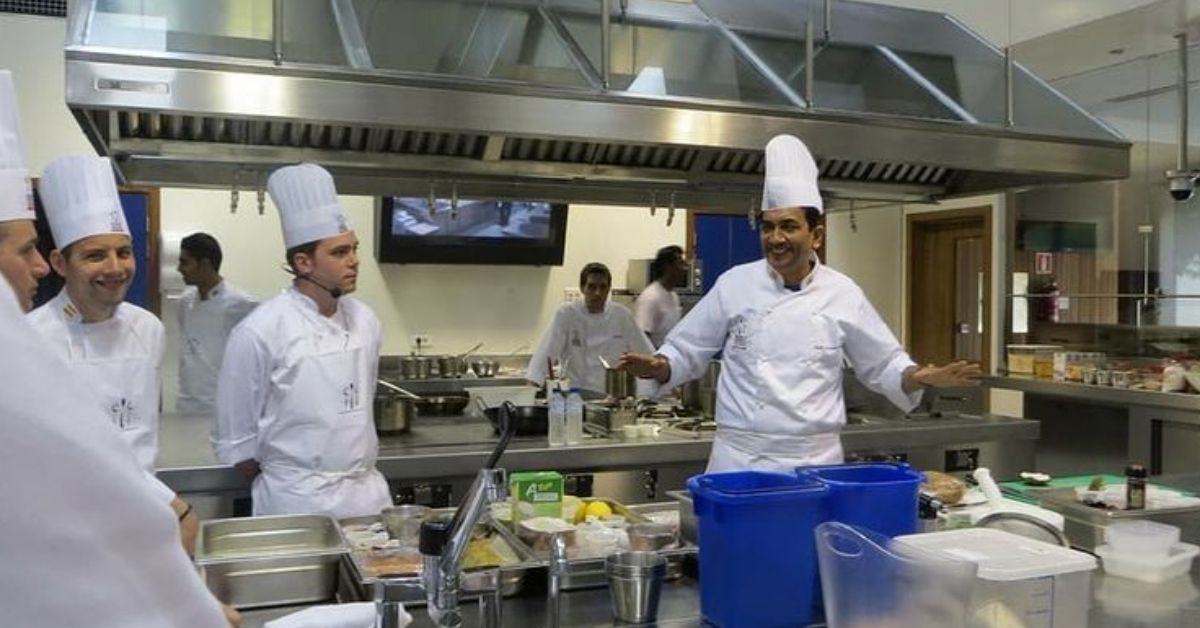
But he notes that in his youth, he did not even know what a ‘chef’ did, and that cooking was never part of his plan. Thanks to his father’s job at the State Bank of India, he was able to experience life in different parts of the country due to regular transfers.
Born in Ambala, Haryana, Sanjeev says he consciously stayed away from engaging in the rat race. Conventional career routes bored him, and he was always looking to take new risks.
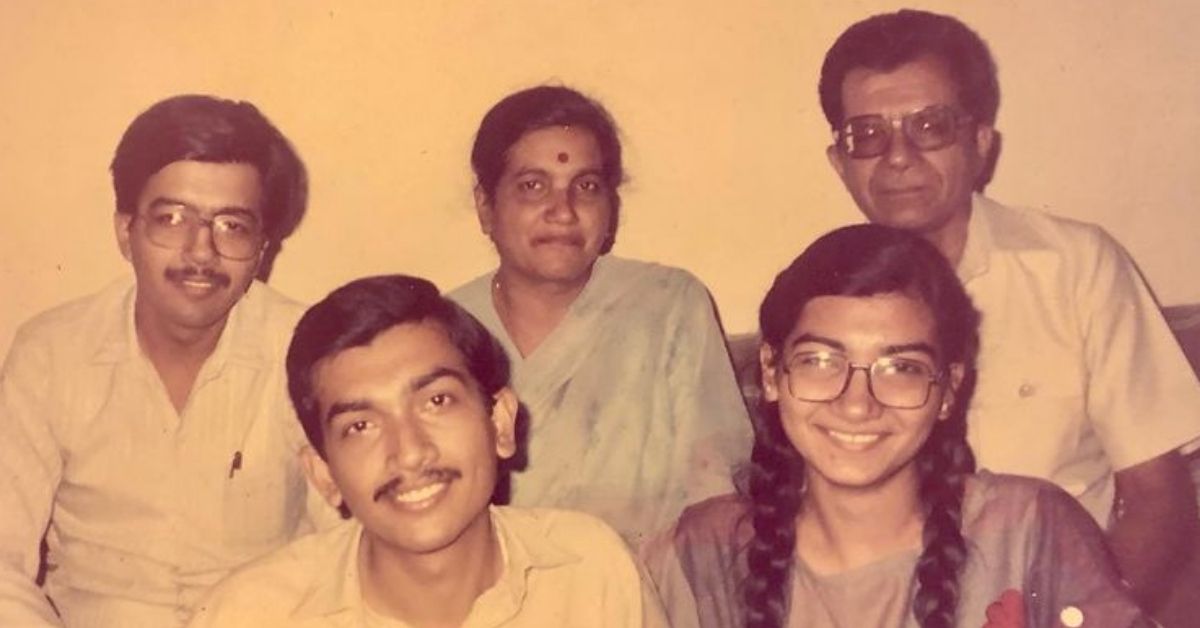
For example, he was the only one in his class to choose Sanskrit as his third language. Ask why and he replies, “because no one else did”.
In the 80s, where acceptable career options did not exceed beyond the confines of professions like medicine and engineering, Sanjeev went for neither, despite scoring 80%. Instead, he applied and got admission in the School of Planning and Architecture.
Hotel management was a mere accidental choice for Sanjeev who says his friend Jasmit Singh had an extra admission form, which he filled out.
“I wanted to do something different, as no one in my family or friends was into hotel management. My parents knew that if I set my eyes on something, I would get the best results, so they trusted me. Wanting to do something different was my predictable behaviour, so there was no resistance. When they asked me if I was sure, I said yes. Honestly, I wasn’t, but I followed the same principle of courage to stand out,” says Sanjeev.
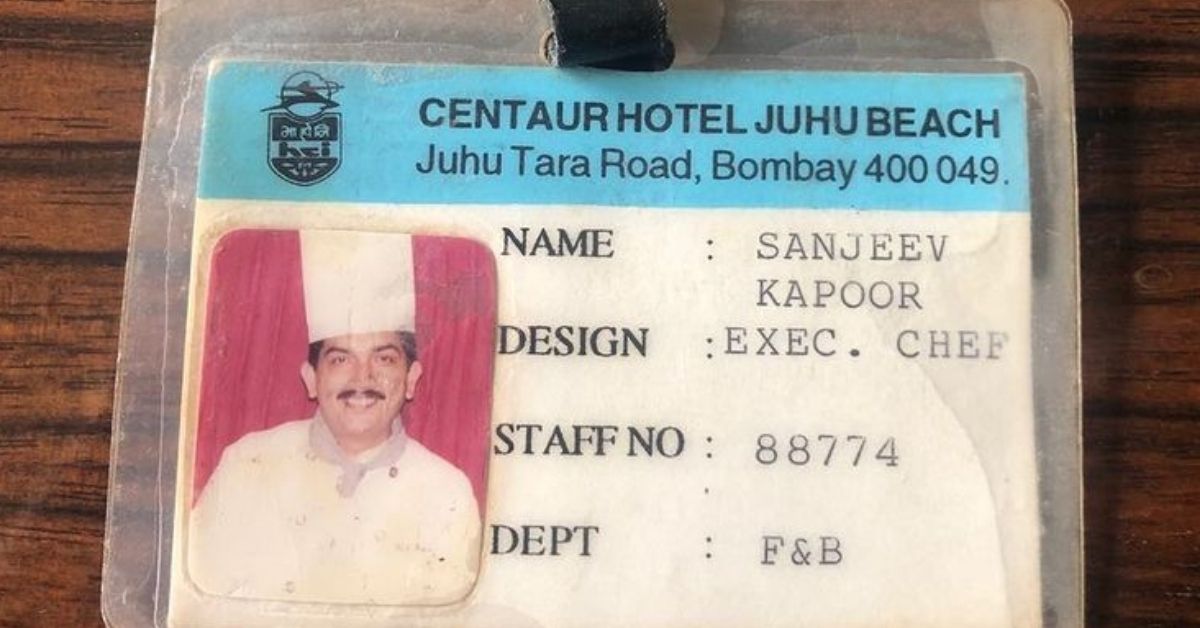
He joined the Pusa Institute of Hotel Management in Delhi, graduated in 1984, and joined ITDC as a management trainee. Two years later, he rose to the position of executive chef in a posting in Varanasi, and then joined ITDC Hotel Samrat in Delhi and later moved to Mumbai to work for Centaur group for five years.
Sanjeev yet again stood out for opting for kitchen duty, as opposed to others who were keen on working at the front desk. This discipline to excel made him the executive chef of Centaur Hotel in Mumbai at the age of 27.
Having peaked so early in his career, he wondered what would come next.
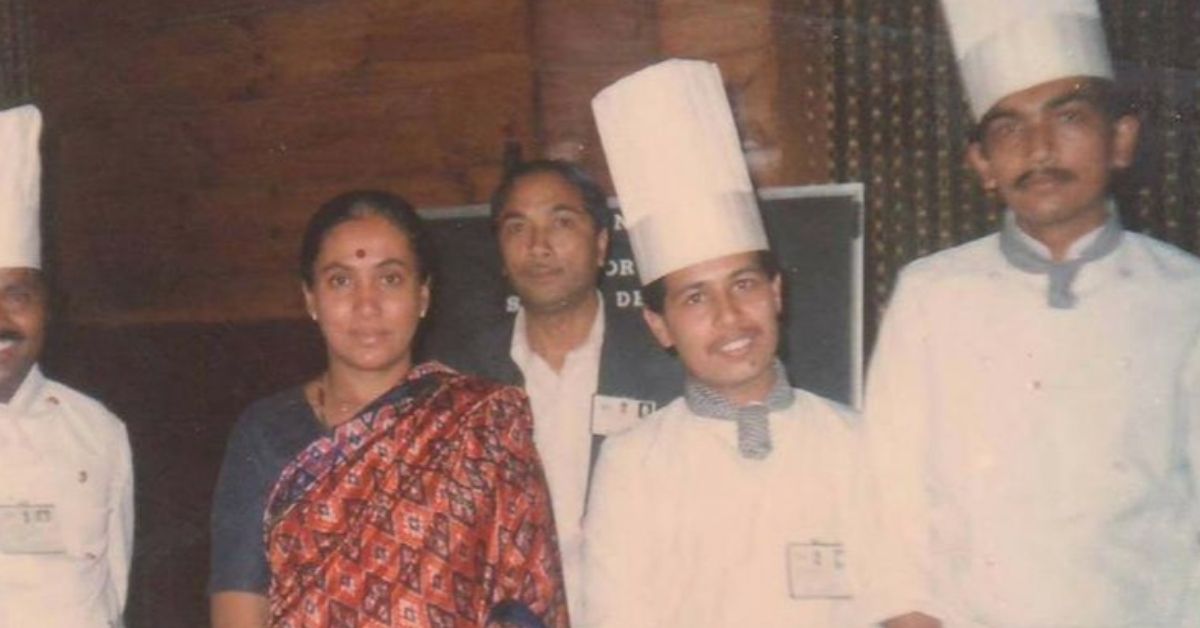
“Head chef was the highest benchmark, so naturally, I wanted to get it as early as possible. I was shocked and it was definitely a cause of worry because I had peaked so early, but I never ran out of options to explore. I joined NMIMS to do a Masters in Marketing Management and then television happened,” he says.
When Food Drives Social Impact
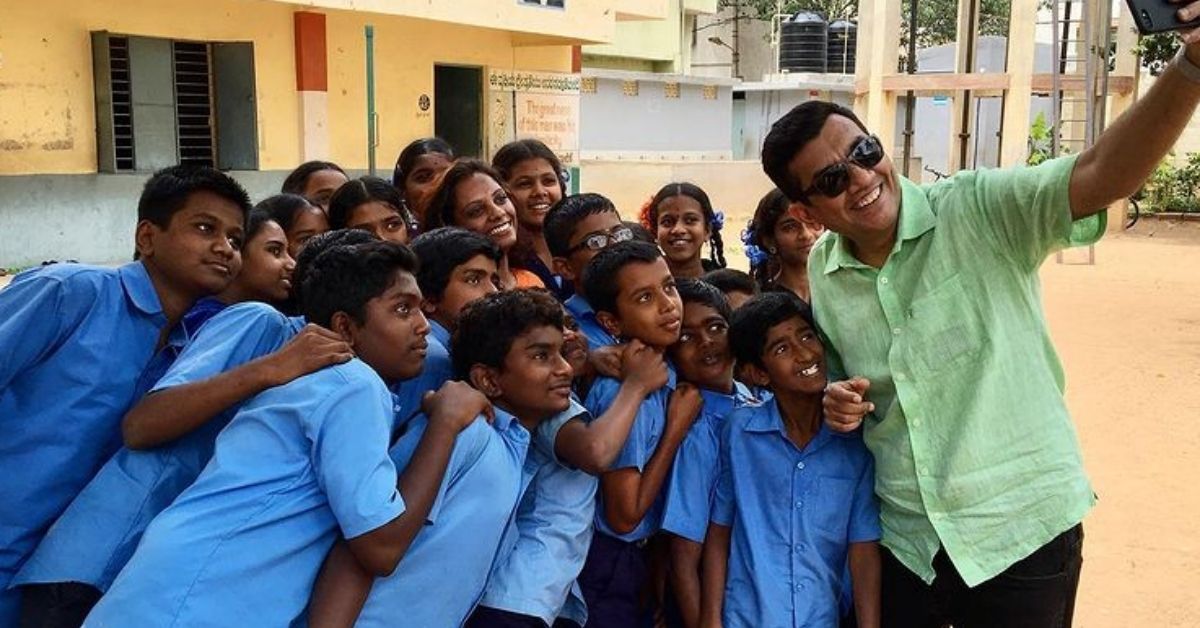
Sanjeev is a man with his finger in many pies, something that is inherent in nature. While many of us are aware of his brands, few may know that he has silently been driving social change through food.
For over 15 years now, he has been working closely with children and adults with autism by supporting and raising funds for Forum for Autism NGO. He also employs persons with autism in his company in order to support them and their families.
Sanjeev helps aspiring chefs from underprivileged families receive training. The United Nations (UN) has appointed him as the Indian Ambassador of their Clean Cookstoves Campaign, which is aimed at the underprivileged in developing countries.
Recently, he collaborated with the Akshay Patra Foundation, Indian Hotels Company Limited (IHCL) and Chef José Andre of the World Central Kitchen to distribute nutritious meals to the medical fraternity fighting to keep the pandemic at bay.
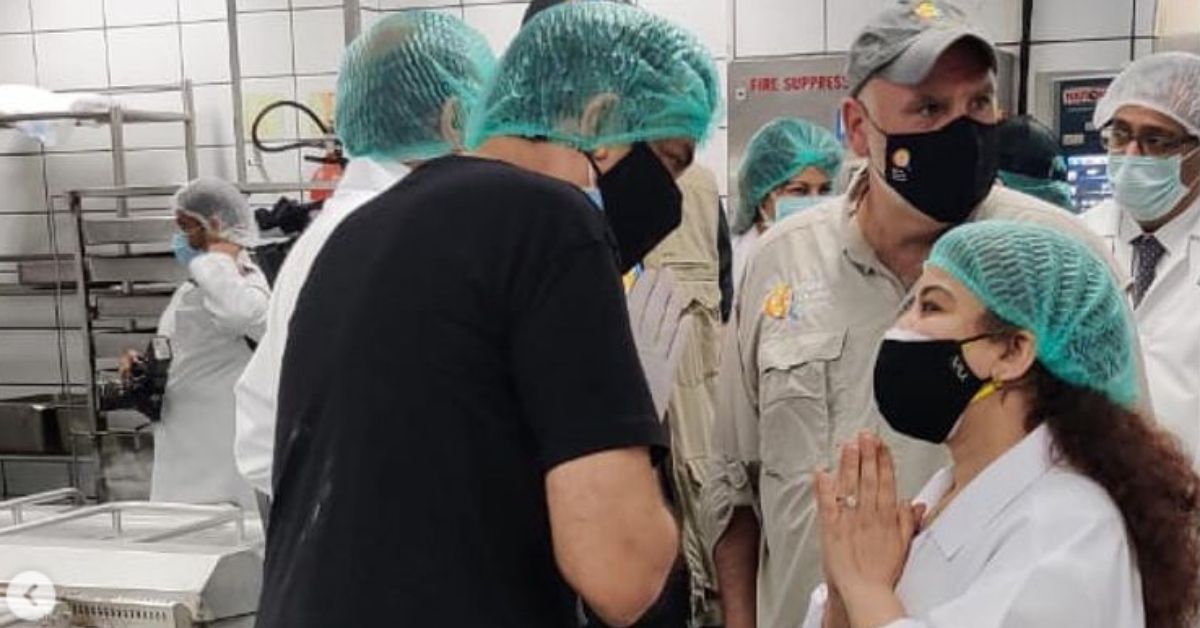
“The hospital staff had been exhaustively working to save lives. In such a high-pressure work environment, it is equally important to consume food for energy and immunity. We prepared special menus for 36 hospitals across 15 cities,” says Sanjeev. On a daily basis, he was dishing out over 25,000 meals for the healthcare staff.
For this work, he was also awarded among 50 Corona warriors by the Maharashtra government in February this year.
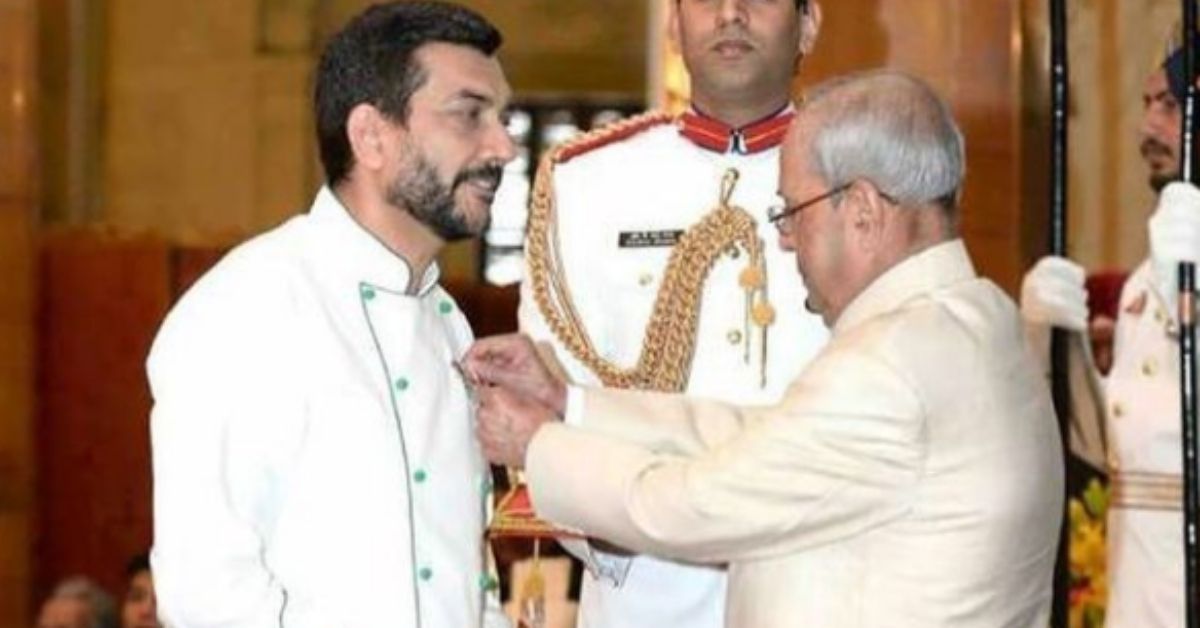
Sanjeev has won several awards over the years, including a Padma Shri and the CNN Award for Top Five Celebrity Chefs. He has also cooked for Prime Minister Narendra Modi. His restaurants and cookware brand are worth crores and he has millions of followers on social media platforms.
Sanjeev has tasted success and fame that may be hard to even fathom, but underneath this heavy chef hat is a boy from Ambala who still enjoys his brown rice with chawli ki sabzi (lobia) for lunch.
All images have been taken from Sanjeev Kapoor/Instagram.
(Edited by Divya Sethu)
No comments:
Post a Comment